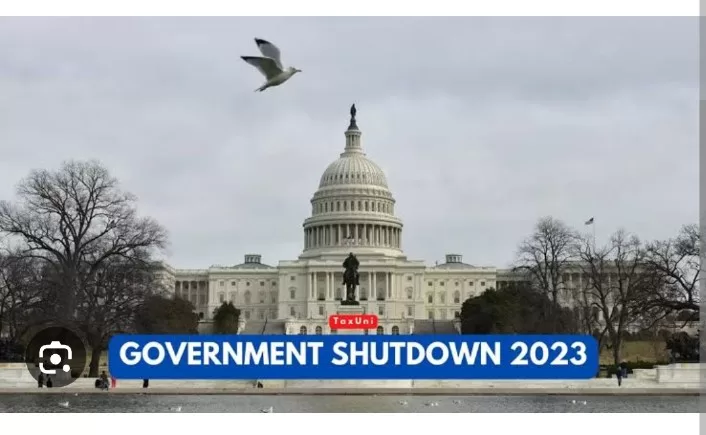In a dramatic eleventh-hour move, the United States Congress successfully passed a funding bill on Saturday to avert a potentially costly government shutdown, ensuring federal agencies’ continued operation for an additional 45 days. This crucial resolution, which was initially proposed in the House of Representatives and later endorsed by the Senate just three hours before the midnight deadline, comes amid intense political negotiations on Capitol Hill.
The “continuing resolution” was introduced by House Speaker Kevin McCarthy, and its passage prevented the distressing scenario of millions of public workers being sent home without pay. The potential consequences of such a shutdown would have been far-reaching, affecting essential government functions ranging from military operations to food aid and policymaking.
While President Joe Biden is set to sign this measure into law shortly, it is important to note that it does not include the aid requested for war-torn Ukraine, a priority for the Biden administration. However, the White House anticipates a separate vote on Ukraine aid, highlighting its continued commitment to supporting Kyiv in its struggle against the Russian invasion.
This shutdown crisis was largely driven by a small faction of hardline Republicans who defied their party leadership, demanding significant spending cuts and derailing various temporary funding proposals. The bill passed on Saturday maintains federal spending at current levels, a move criticized by House Democratic leader Hakeem Jeffries as a “complete and total surrender by right-wing extremists.”
The fate of Speaker Kevin McCarthy is now uncertain, as the group of 21 hardline Republicans had threatened to remove him from his position if a stopgap measure, opposed by them, passed with Democratic support. McCarthy, however, expressed optimism about reaching a final agreement within the 45-day extension.
While the political drama unfolded, concerns about the Biden administration’s policy on Ukraine aid arose. Although the stopgap funding is temporary, it raises questions about the long-term commitment to providing multibillion-dollar assistance to Ukraine. Despite acknowledging the severity of Russia’s invasion, McCarthy emphasized the need to avoid offering Ukraine a “blank check.”
In the midst of these high-stakes political maneuvers, tensions ran so high that a fire alarm was triggered in a congressional office building an hour before the House vote, further highlighting the intense atmosphere surrounding this critical issue.
Had Congress failed to pass this funding bill, the government would have faced closures starting shortly after midnight, potentially delaying salaries for millions of federal employees and military personnel. National parks, including iconic locations such as Yosemite and Yellowstone, would have closed to the public, causing significant disruptions.
The stopgap measure ultimately grants legislators additional time to negotiate full-year spending bills for the remainder of fiscal year 2024. This development underscores the challenges and divisions within the Republican Party while highlighting the Biden administration’s ongoing commitment to supporting Ukraine during a tumultuous period in global politics.







